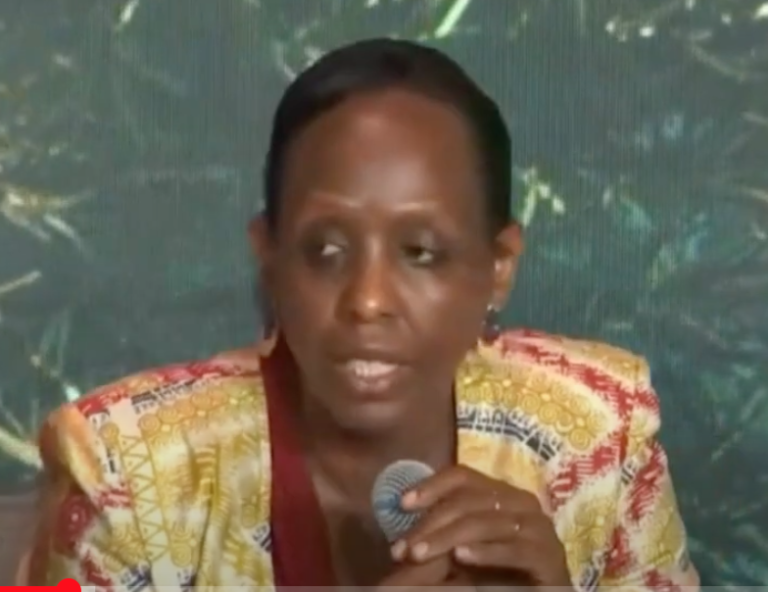
Seven Years to Save the World: Dr. Agnes Kalibata on the Role of Food Systems in Achieving SDGs
By Anthony Muchoki
As global leaders gather at the United Nations General Assembly, conversations about the Sustainable Development Goals (SDGs) come to the forefront. One voice that resonates powerfully is that of Dr. Agnes Kalibata, President of AGRA – Sustainably Growing Africa’s Food Systems. At the SDG Pavilion, she joined other experts to dissect the intricate connection between food systems and sustainable development, casting a spotlight on the urgency to act.
“Our Food Systems Are Broken”
In her opening remarks, Dr. Kalibata minced no words: “Our food systems are broken. They impact all 17 SDGs and are a pivotal component for whether we succeed or fail in achieving them.” She went on to describe how despite having food, millions of people worldwide are undernourished, adding that “our consumption pattern is completely impacting our environment.”
“When we note the food system summit a number of years ago, four years ago now, the issue was recognizing that there are a number of things that are happening that are really not adding up. They are impacting our environment,” Dr. Kalibata stated.
The Underpinning of Every SDG
Dr. Kalibata pointed to the direct relationship between food systems and every single SDG. “Transforming the food system is very critical to achieving all the 17 SDGs. If we’re going to be able to feed people and correct the damage that’s been done to the environment, then we must make sure that this type of damage doesn’t happen again,” she argued.
Finance: The Inconvenient Truth
As the conversation shifted to the role of finance, Dr. Kalibata raised an issue that often gets sidestepped. “What happens in the food system in Africa is that a lot of financing happens through resources from ultra-institutions, but when you go to translate that financing, it doesn’t create an impact on the ground. You get $50 million over 5 or 10 years across a population of 40 million people, and you realize that it translates into 0.0001 per capita investment. Debt continues piling up, and you ask yourself, where does development go? It doesn’t add up; it’s too little, too late, too far apart.”
She emphasized the need for “impact-oriented, results-oriented financing,” arguing that perhaps existing institutions “don’t have enough money to fund the type of development we are looking for.”
Africa and the Climate Crisis
Dr. Kalibata highlighted the disproportionate effects of climate change on Africa. “The biggest challenge of all times for the African continent is something we have no ability to find a solution to; it’s called climate change. Climate change is causing droughts, floods, and you’re seeing that across the African continent. We need a global policy to fix climate change,” she said.
“Until we all, as the world, decide to do something, Africa alone cannot do anything about it. We learned from COVID-19 that what happens in one part of the world affects all of us,” Dr. Kalibata added.
The Role of the Private Sector
When asked about the role of the private sector, Dr. Kalibata saw them as essential in innovating the food system. “Private sector owns probably 90% of the food system, and the food system contributes to 30% of emissions. Most of all, they need to recognize that they own the food system, and if we don’t manage how the food system is contributing carbon to the environment, then we are a big part of the problem,” she stated.
Dr. Kalibata offered a concrete example: “Take food loss and waste. Retail systems must recognize that this contributes 8% to emissions. You can turn it into a solution by moving food that’s nearing its use-by date to communities that need it. That’s not a loss; you’re saving the environment lots of damage.”
The Final Countdown: The Next Seven Years
With just seven years left to realize the SDGs, Dr. Kalibata’s closing remarks were both a warning and a call to action. “Our governments must act; we need to ensure that we are financing the decarbonization of the food system. All of us are part of the food system, and all of us know what is going wrong. If we start paying for the true cost of food—environment, water, labor—we can actually ensure that our world is going to a better place.”
The conversation at the SDG Pavilion was a potent reminder that food systems are not just about the food on our plates. They are about creating a world that is more equitable, sustainable, and capable of addressing the myriad challenges that lie ahead. In Dr. Kalibata’s words and vision, the pathway seems both daunting and achievable—but only if we act now.
___
Source | Kilimokwanza
